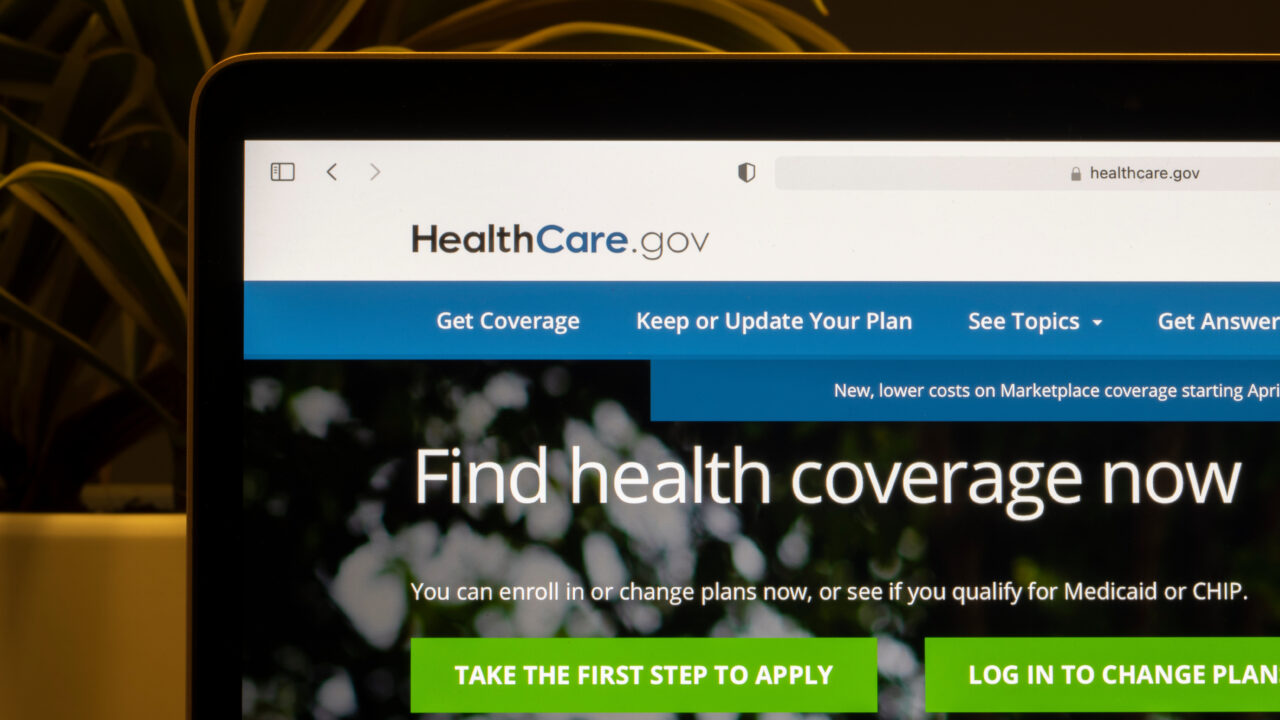Biden’s Obamacare Expansion for DACA Immigrants Isn’t Big Enough
While 40,000 Dreamers are likely to gain coverage, nearly half a million undocumented immigrants still cannot afford health insurance. Image: Adobe
Image: Adobe
Nowhere is the Biden Administration’s decision to expand the Affordable Care Act to include undocumented people who entered the U.S. as children felt more keenly than in California. Among the roughly 100,000 people in the U.S. who’ll now likely sign up for subsidized health insurance, nearly a third of those Deferred Action for Childhood Arrivals (DACA) recipients will be from the Golden State alone.
“That’s a lot of people getting financial help to be covered,” said Miranda Dietz, a policy research specialist at the UC Berkeley Labor Center, which has closely tracked progress on the federal rule since it was proposed last year. “It is meaningful.”
It’s also nowhere near what California actually needs in order to reach Gov. Gavin Newsom’s goal of “universal coverage” for residents of the state. In fact, Dietz says, there is a gap of about 500,000 California undocumented immigrants for whom health insurance remains out of reach.
The DACA decision is significant in its own right, no question. But it also illustrates the scope of the task Newsom has embraced.
* * *
The federal decision is both important and symbolic. What it does, effectively, is allow DACA recipients — Dreamers, as they’re often called — to obtain health coverage through Obamacare, meaning they’ll qualify for federal subsidies that could help offset the often-outrageous monthly premiums charged by the health care giants who provide coverage through the program.
Dreamers are undocumented immigrants who arrived in the U.S. at a very young age, and the DACA program was established by then-President Barack Obama in 2012 to afford them some protections, including eligibility for work permits and deferred deportation. (Republican-led court challenges have since chipped away at some aspects of the program.)
Under the original provisions of the Affordable Care Act, though, Dreamers were not allowed to use the health coverage program, which is administered here as Covered California, because they were not by definition “lawfully present” in the country. Last week’s rule eliminates the exclusion.
There is a gap of about 500,000 California undocumented immigrants for whom health insurance remains out of reach.
“I’m proud of the contributions of Dreamers to our country and committed to providing Dreamers the support they need to succeed,” President Joe Biden said in announcing the change. “Dreamers are our loved ones, our nurses, teachers and small-business owners. And they deserve the promise of health care just like all of us.”
Like other undocumented immigrants in California, Dreamers — there are roughly 165,000 in the state — have become eligible for Medi-Cal coverage via rounds of expansion initiated during Newsom’s governorship. But the UC Berkeley Labor Center estimates that about 40,000 Dreamers earn too much to qualify for Medi-Cal, and they either don’t have or can’t afford employer-run plans or policies bought directly from insurers.
Covered California, though hardly perfect, now becomes an option for them. Dietz said that about three-fourths of the newly eligible will likely take advantage of the program, meaning 30,000 residents of the state will be added to the rolls of the insured.
It is but a start.
* * *
Despite the expansion of Medi-Cal to cover Californians regardless of their immigration status, the system isn’t foolproof. The program is designed to aid low-income people and families, but the income restriction is severe.
To qualify for Medi-Cal, a single person cannot earn more than $20,783 in a year. A family of four cannot exceed $43,056. That’s $20.70 an hour, based on a 40-hour workweek and no time off — a figure very easy to exceed while still consigning a family to a hardscrabble daily life.
“There are about half a million folks who are undocumented but earn too much for Medi-Cal, so they are uninsured,” Dietz said. “They’re also not part of DACA, because that program no longer accepts new applicants.” DACA was closed to new participants by a federal court order in 2021.
“There are about half a million folks who are undocumented but earn too much for Medi-Cal, so they are uninsured.”
That’s a key point. The Biden Administration’s new ruling affects only DACA recipients; anyone else who is not “lawfully present” in the country is still explicitly excluded from the provisions of the Affordable Care Act — and therefore can’t use Covered California to buy health insurance at all.
The DACA ruling “chipped away” at the coverage gap in California, Dietz said. The remaining issue, she added, “is an order of magnitude larger.”
* * *
A work-around piece of legislation attempts to address that, though its prospects for passage are murky. Authored by State Assemblymember Joaquin Arambula (D-Fresno), AB 4 would instruct Covered California to begin offering health plans to undocumented residents through a new program that basically mirrors what is currently on the exchange but doesn’t involve federal money.
A work-around piece of legislation attempts to address that, though its prospects for passage are murky.
The measure, brought forth last year and then carried over as a two-year bill, also establishes the framework to include state-funded subsidies for those plans at some point in the future. There’s no time frame for that, an indicator that budgetary headwinds could easily blow AB 4 off course if it called for immediate funding.
Newsom campaigned for governor in part by touting single-payer health care, a government-organized system with no insurance companies, no premiums, no deductibles and no co-pays. Once in office, he backed away from that platform and instead embraced “universal coverage,” a term meant to suggest that everyone in California at least has some access to care.
The DACA ruling, though clearly important, underscores how piecemeal the process of getting there really is. Newsom’s next challenge: closing off this much wider gap for a group of people who collectively pay billions of dollars in state and local taxes yet can’t see a doctor when they’re sick.
Copyright 2024 Capital & Main
Your support matters…Independent journalism is under threat and overshadowed by heavily funded mainstream media.
You can help level the playing field. Become a member.
Your tax-deductible contribution keeps us digging beneath the headlines to give you thought-provoking, investigative reporting and analysis that unearths what's really happening- without compromise.
Give today to support our courageous, independent journalists.








You need to be a supporter to comment.
There are currently no responses to this article.
Be the first to respond.